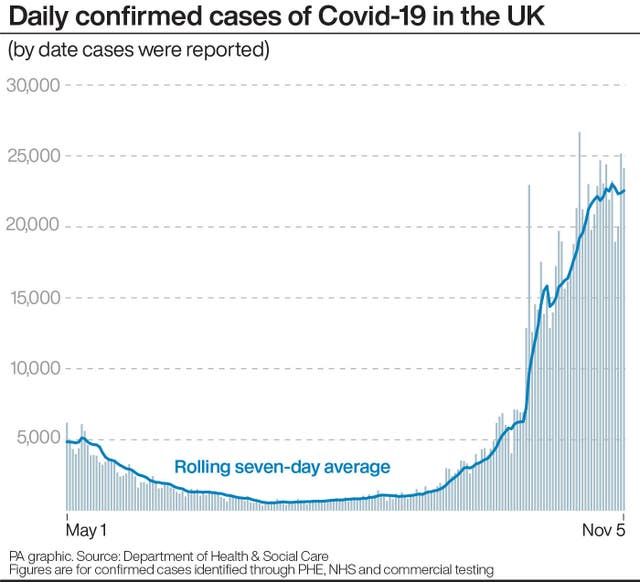A union has warned it is too late to find the nurses needed to meet the demands of an “extremely challenging” winter and called on the government to “be honest” about the risks a lack of staff could pose to patient safety.
“Burn out”
The Royal College of Nursing (RCN) said that despite more nurses being registered with the Nursing and Midwifery Council (NMC) than last year, there are still around 40,000 registered nursing vacancies in England alone.
This week the health service in England moved to its highest alert level, level four, to deal with coronavirus (Covid-19) cases.
NHS England chief executive Simon Stevens said the move was in response to a “serious situation ahead”, adding there were “22 hospitals’ worth” of coronavirus patients in hospitals across the country.
The union said it is concerned staff could “burn out” over winter unless local staffing plans proposed by NHS England prioritise the “safest, highest quality care”.
The RCN is demanding that the government’s decisions and planning about what the NHS can provide this winter are based on the actual number of nursing staff available and what those staff can safely maintain. It’s also insisting workers must be able to raise concerns about staffing levels and patient safety, and be assured such worries will be properly acted on.

Not enough to go around
Mike Adams, RCN England director, said:
The NHS is now at its highest level of preparedness as it faces the prospect of an extremely challenging winter.
We already know that frontline nurses, in hospitals, communities and care homes, are under huge strain, and anecdotally we’re hearing that in some hospitals they are becoming increasingly thinly spread on the ground, as staff become unwell or have to isolate at the same time as demand on services continues to increase.
The Government says nurses have been given extra training to provide more critical care staff to treat Covid-19 patients, but there simply aren’t enough to go around.
There are around 40,000 registered nursing vacancies across the NHS in England alone.
It is essential that learning is applied to planning for this winter, including what service can be delivered safely with the workforce available.
“Real and serious”
On 5 November, Stevens appeared alongside Boris Johnson for a press conference during which he assured sceptics that the second wave of the pandemic “is real and serious”. The health chief said:
The health service has been working incredibly hard to prepare and to catch up on the care that was disrupted during the first wave.
Stevens said around 30,000 staff in the health service were either off with coronavirus or having to self-isolate, and “that has an impact”.















